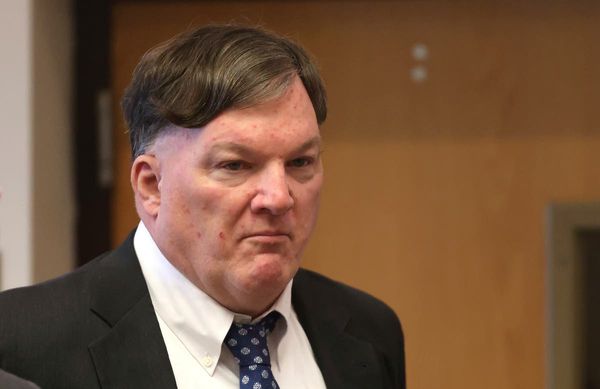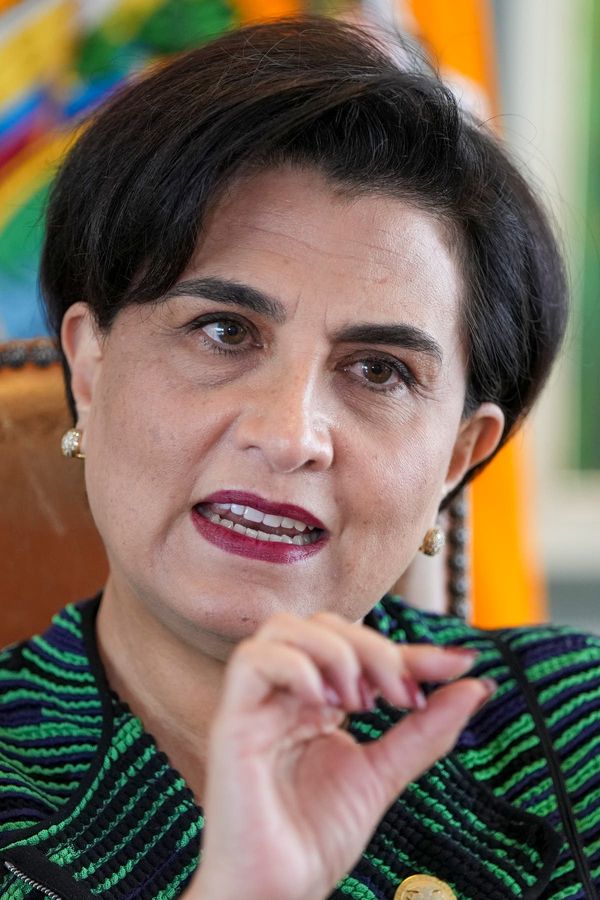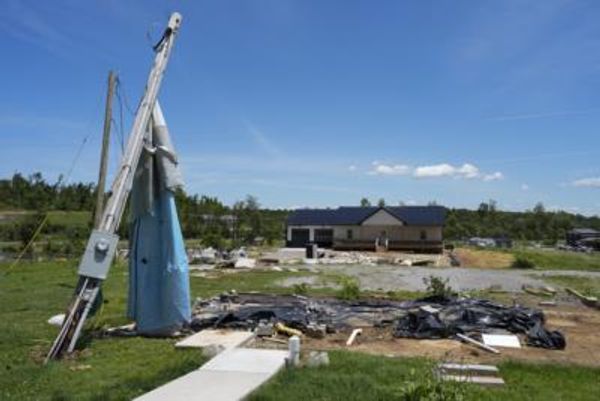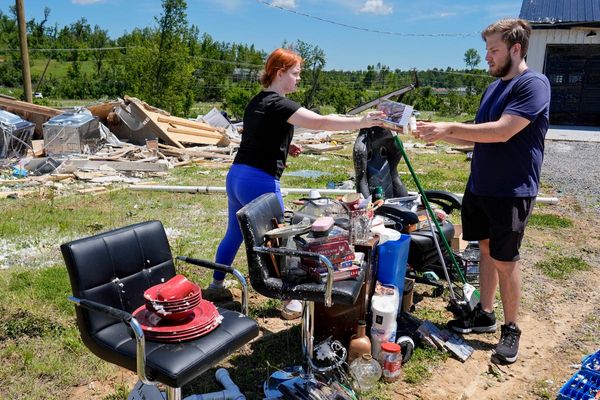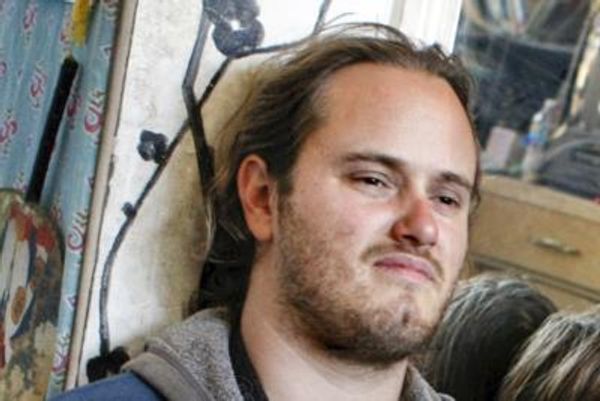
Israel fell silent on Tuesday to observe a minute’s silence to mark one month since the Hamas terrorist attacks that killed 1,400, mostly civilians at home and at a festival, and injured many more.
At 11am, people stood silently on the street and at schools, businesses and in cafes in Jerusalem and elsewhere, heads bowed. Some wept, others prayed or held hands.
Throughout the day thousands attended ceremonies held by public organisations and institutions. Schools, universities and youth movements arranged special lessons, lectures and other activities.
“Now there is a coming together, and you feel you belong to a community that cares and that is how I feel today,’ said Nava Ben-Or, a retired judge at a memorial outside the president’s official residence in Jerusalem. “This is not just for the bereaved but for everybody. We are all grieving.”
Outside the Knesset, the Israeli parliament, a crowd gathered for a vigil to remember the dead and the estimated 240 hostages still held by Hamas, the Islamist organisation that governs Gaza and was responsible for the attacks a month ago.

Ayaleth Katzit, 54, said she had come to show solidarity. “We are grieving. We are disappointed by our government which doesn’t know how to do its job in these hard times. The government is trying to divide us … but most Israelis are not like this,” Katzit said.
Yaakov Godo, 74, had travelled to the Knesset to confront politicians that he holds responsible for the death of his son, who was shot in his home on a kibbutz by Hamas attackers. His wife and three young daughters narrowly escaped.
“It has taken me a month to come to terms with the death of my son and my grief. There are many people like me and we have felt very alone, but there are many Israelis who do not want to be angry and want revenge by wiping out Gaza,” Godo said, standing in front of a row of portraits of missing hostages, who include infants, children and elderly people.
“It is very difficult for me to a pass a message that is so different to the message of revenge and anger. But I promised my son at his funeral that I would bring a message of peace and hope. That was my promise to him.”
The 7 October attacks came at moment of extreme political polarisation in Israel, exacerbated by the return to office of Benjamin Netanyahu last year at the head of a far-right coalition that has sought to undermine the country’s judicial system.
Polls now suggest that four in five people blame the Israeli government for the 7 October massacres and more than half want the Netanyahu to resign.
However, existing political and cultural battles have continued into the current crisis.
Near the Knesset rows of banners placed by relatives of the hostages, many of whom have called for negotiations with Hamas to secure the release of their loved ones, had been deliberately obscured by others that also demanded “no end” to the current Israeli offensive on Gaza until the “terrorists are exterminated, the area cleaned out and full control established”.

The Israeli offensive has killed more than 10,000 people in Gaza so far, including 4,000 children, according to local health authorities.
There is little sign of any widespread opposition to the campaign in Israel, and much support for frontline soldiers. Hundreds of thousands of ordinary Israelis remain mobilised.
One man shouted abuse at the small gathering of bereaved relatives and hostages’ families outside the Knesset, accusing them of being “leftist traitors”.
At Jerusalem’s Hebrew University about 1,000 people recited prayers and dozens attended a memorial at the Bezalel Academy of Art and Design, where a crowd wearing black lit rows of tealight candles commemorating the victims.
Sobs could be heard as they sang the “Hatikvah” national anthem – meaning “the hope” in Hebrew.
“No one has the right words,” said Adi Stern, the president of the academy. “We are all in despair, in horror. We want to add some hope.
“It’s extremely difficult but we have to do it,” he said.
